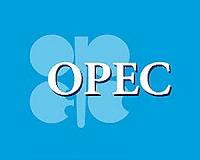 |
Baghdad (UPI) Nov 4, 2010 The International Energy Agency has poured cold water on Iraq's plans to quadruple oil production to 12 million barrels a day by 2017, saying it could take 20 years just to reach half the target total. But the agency predicted in a draft of its annual World Energy Outlook that Iraq will succeed in pushing production up enough to overtake its longtime regional rival, Iran, "by soon after 2015." The only countries that have been able to pull off the kind of feat that Iraq seeks to achieve are the former Soviet Union and Saudi Arabia, who during the 1960s pushed through the 10 million bpd barrier. The difference is that they had the infrastructural capabilities and postwar Iraq doesn't. Industry analysts have long been skeptical of Baghdad's ambitious plans and say although Iraq wants to rapidly upgrade and expand its long-neglected oil infrastructure, the task is immense. "In some cases, the only thing holding the pipelines together is the sludge in them," a Western diplomat observed recently. The IEA report amplifies those concerns. It said that if investment targets of around $150 billion are met, largely by the foreign oil companies, Iraqi production should reach 12 million bpd in the allotted time. But it estimated that a more realistic figure, provided infrastructure was improved, would be a production level of 6.5 million bpd by the 2030s compared to the current 2.4 million bpd. The agency emphasized the mammoth task that lies ahead, noting that "basic infrastructure, including roads, bridges, airports and water supply are all in need of repair and expansion." It said "a major expansion of shipping ports will also be needed." The IEA cautioned that "the sheer scale of the required construction of infrastructure, coupled with political uncertainties, suggests that the expansion of capacity will be much slower." If the Iraqis succeed in reaching their target of 12 million bpd, it would, on current production levels, challenge Saudi Arabia, the world's largest producer, and eclipse Iran, currently the No. 2 producer in the Saudi-dominated Organization of Petroleum Exporting Countries. On Oct. 4, Baghdad declared, after signing 20-year production contracts with a host of international oil companies in 2009 to boost its laggardly output, that it upgraded its oil reserves from 115 billion barrels to 143.1 billion. That was a 24 percent hike, which vaulted Iraq over Iran in the reserves standings and put it behind Saudi Arabia and Venezuela in terms of conventional oil reserves. A week later, Tehran responded by boosting Iran's reserves from 138 billion barrels to 150.3 billion, a 9 percent increase, and said the figure was likely to go up again before the end of the Iranian year in March 2011. Iran's current output, despite U.S., U.N. and European Union sanctions, is pegged at 3.7 million barrels per day while Iraq's stands at around 2.4 million bpd. But given the ever-tightening sanctions, aimed to a large extent at Iran's troubled energy industry, Iraq stands an infinitely better chance of boosting production than Iran. And it's production levels, rather than reserves, that count in determining the pecking order in the global oil business. Iraq's infrastructure is in a sorry state after decades of war, rebellion, political turmoil and international sanctions imposed when Saddam Hussein was in power. Now the Oil Ministry has a $50 billion plan to modernize and expand energy infrastructure. This involves extending its 4,500-mile-long pipeline network and building four more refineries as well as boosting export facilities through Turkey in the north and south through the Persian Gulf. Discussions are under way with foreign companies on tendering for these projects that are intended to boost refining capacity by around 750,000 bpd. Iraq has eight refineries with a combined capacity of 659,000 bpd but these have proven woefully inadequate in meeting domestic requirements since the U.S.-led invasion of March 2003. The ministry says the new refineries will be at the southern city of Nasiriyah, with a capacity of 300,000 bpd, Kirkuk in the north at 150,000 bpd, Maysan in the south at 150,000 bpd and the holy Shiite city of Karbala, south of Baghdad, at 140,000 bpd.
Share This Article With Planet Earth
Related Links Powering The World in the 21st Century at Energy-Daily.com
 OPEC maintains oil outlook, warns of climate policies
OPEC maintains oil outlook, warns of climate policiesVienna (AFP) Nov 4, 2010 OPEC kept its medium- and long-term forecasts for global oil demand relatively unchanged in a new report on Thursday but also spotlighted the impact of environmental policies on the energy market. By 2015, demand was expected to reach 91 million barrels per day (bpd), according to the cartel's 2010 World Oil Outlook, up from the 90.2 million bpd predicted in last year's report. While r ... read more |
|
| The content herein, unless otherwise known to be public domain, are Copyright 1995-2010 - SpaceDaily. AFP and UPI Wire Stories are copyright Agence France-Presse and United Press International. ESA Portal Reports are copyright European Space Agency. All NASA sourced material is public domain. Additional copyrights may apply in whole or part to other bona fide parties. Advertising does not imply endorsement,agreement or approval of any opinions, statements or information provided by SpaceDaily on any Web page published or hosted by SpaceDaily. Privacy Statement |